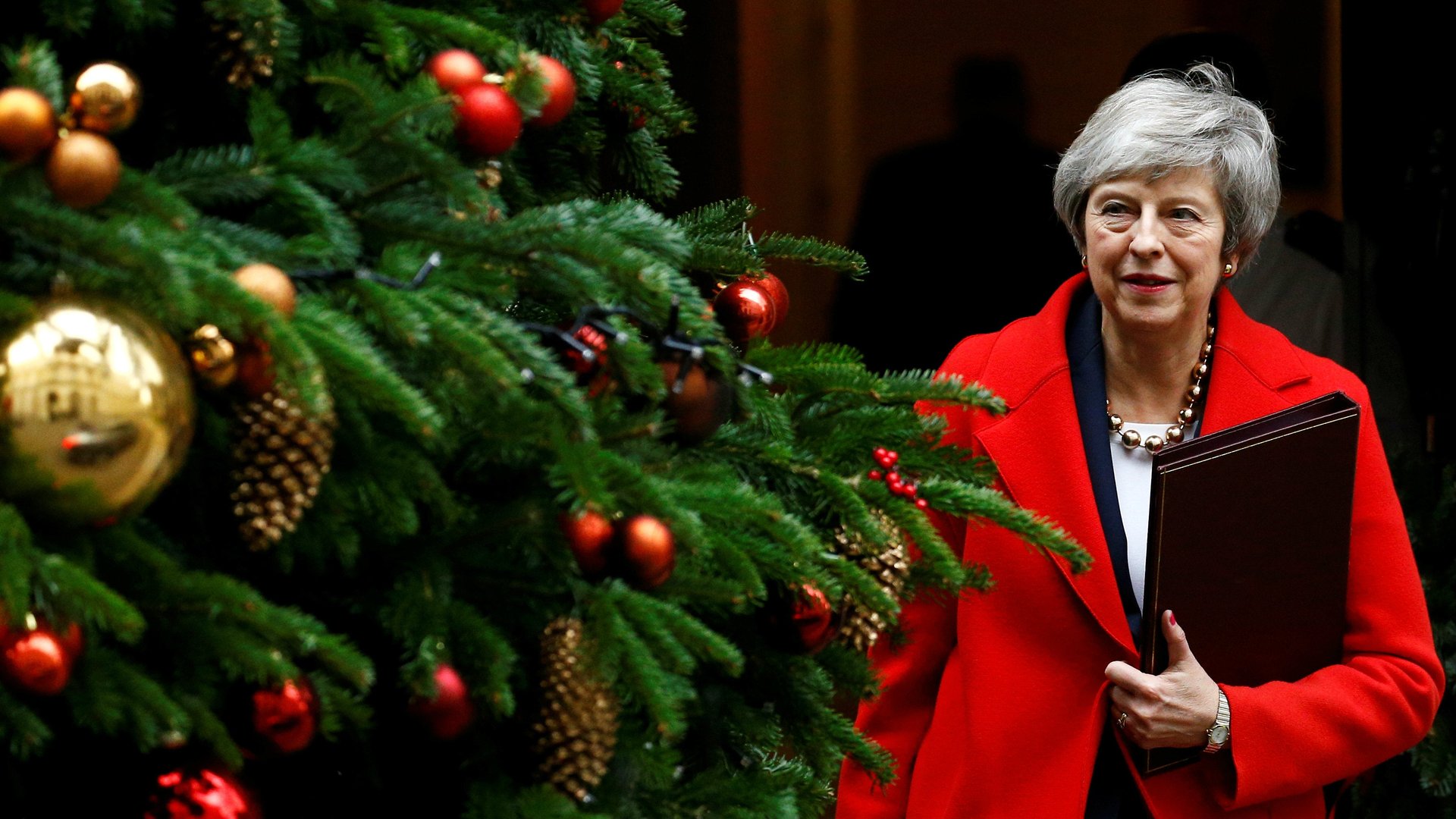Norway doesn’t want to belong to a club that has post-Brexit Britain as a member
British prime minister Theresa May is struggling to gain support for her plan to steer the UK out of the EU. Her deal has two parts: a 585-page divorce agreement and a 26-page statement of intent on future relations between Britain and the EU. It is seen by some as not enough of a clean break from the EU, and by others as pushing Britain too far away from its closest trading partners. In other words, it’s a hot political mess.


British prime minister Theresa May is struggling to gain support for her plan to steer the UK out of the EU. Her deal has two parts: a 585-page divorce agreement and a 26-page statement of intent on future relations between Britain and the EU. It is seen by some as not enough of a clean break from the EU, and by others as pushing Britain too far away from its closest trading partners. In other words, it’s a hot political mess.
Parliament votes on May’s plan on Dec. 11, and nobody knows what will happen if—or, more likely, when—it is rejected by lawmakers. Britain will formally leave the EU at the end of March next year, whether it has a transitional arrangement in place or not.
In lieu of May’s plan, an increasingly popular idea floated by some is the so-called “Norway option”: Britain stays in the EU’s common market, follows the bloc’s rules, but gains the right to sign its own trade deals with outside countries. This is the current arrangement, with some wrinkles, for the members of the European Free Trade Association (EFTA)—Norway, Switzerland, Iceland, and Liechtenstein, none of which are officially in the EU.
The biggest hurdle to the UK joining the EFTA, or forging a relationship with the EU akin to it, is that it would mean Britain would have to follow the rules around the free movement of people across the bloc. Curbing immigration from the rest of the EU was a major motivating factor for British voters who opted for Brexit in the 2016 referendum.
What’s more, Norwegians think it’s a bad idea to let post-Brexit Britain into their club. “I think you would mess it all up for us, the way you have messed it all up for yourselves,” Heidi Nordby Lunde, a conservative member of parliament in Norway, recently told the UK’s Channel 4 News. Lunde’s party is the senior member of Norway’s current government coalition under prime minister Erna Solberg.
Lunde wrote in the Guardian yesterday that the UK seeking a temporary Norway option, much less a permanent one, wouldn’t work. “It would be like inviting the rowdy uncle to a Christmas party, spiking the drinks and hoping that things go well. They would not.”
And yet, Amber Rudd, the UK’s minister for work and pensions, said today that she was in favor of a “Norway-plus” model if May’s Brexit deal failed in the vote in parliament next week. ”Nobody knows if it can be done,” she admitted, according to Politico.
If Lunde is any indication, it cannot. The talk in the UK of following Norway’s example after Brexit—enjoying many of the benefits of EU membership without actually joining the EU—is misguided. “We’re not interested in being the rebound girl while you look for better options,” Lunde wrote.